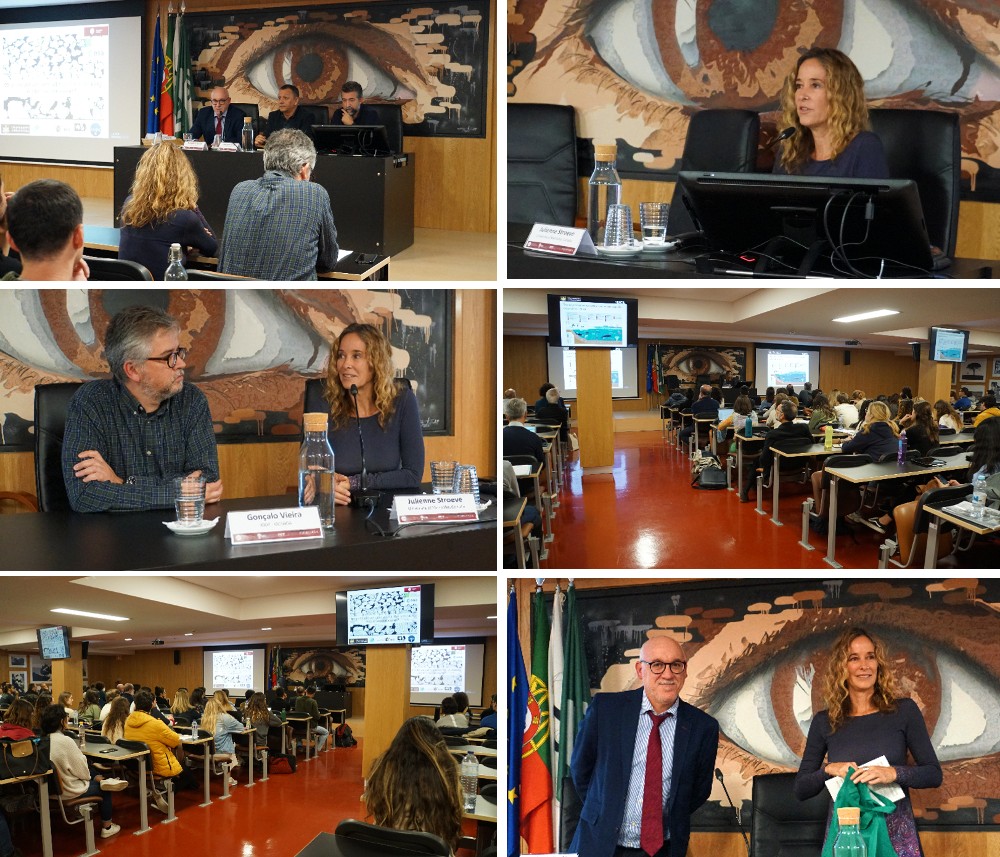2022 | Julienne Stroeve
Lección Anual 2022: Why should we care about the shrinking Arctic Sea Ice Cover?
Este fue el tema de la Lección Anual de 2022, organizada por la revista Finisterra, que tuvo lugar el 25 de noviembre a las 16:30 (hora de Lisboa, Portugal), en formato híbrido (presencial y en línea).
Julienne C. Stroeve (Universidad de Manitoba, Canadá) fue la ponente invitada en esta sesión.
Doctora en Geografía (1996) por la Universidad de Colorado – Boulder, EE. UU., Julienne C. Stroeve fue profesora e investigadora en retroalimentaciones entre el clima y el hielo marino en la Universidad de Manitoba, Winnipeg, Canadá. Durante más de 20 años, fue investigadora senior en el National Snow and Ice Data Center (NSIDC, CIRES), Universidad de Colorado, Boulder, EE. UU. Entre 2016 y 2019, enseñó modelización y monitoreo de entornos polares en el University College London (UCL), Reino Unido. En 2020, recibió la Medalla Julia and Johannes Weertman de la European Geosciences Union (EGU), por su "significativa contribución científica a la mejora de la detección remota del hielo marino, la mejor comprensión de las causas de su variabilidad y cambio, y su compromiso con la divulgación científica al público general”.
Desde 2014, ha registrado un elevado número de citas en la plataforma de indexación Clarivate – Web of Science. Su investigación se centró en la detección remota de nieve y hielo, particularmente en la profundidad de la nieve y el grosor del hielo a través de altimetría satelital, en relación con la variabilidad del hielo marino y sus implicaciones en el clima, los ecosistemas marinos y las comunidades locales. Sus amplios intereses de investigación en el Ártico incluyeron las interacciones atmósfera–hielo marino, la climatología sinóptica, la predictibilidad del hielo marino, la detección remota, el cambio climático y sus impactos en las comunidades indígenas. Realizó trabajo de campo en Groenlandia, Canadá, el Océano Ártico y regiones nevadas de Estados Unidos. En la última década, centró cada vez más sus esfuerzos en comprender los rápidos cambios ambientales observados en el Ártico y lo que estos significan para el resto del planeta.
Lugar: Auditorio Orlando Ribeiro, Edificio IGOT – Universidad de Lisboa, Rua Branca Edmée Marques, 1600-276 Lisboa



